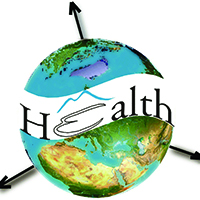Post-traumatic stress in people from the interior drylands of the Maule region, Chile in the context of climate change

All claims expressed in this article are solely those of the authors and do not necessarily represent those of their affiliated organizations, or those of the publisher, the editors and the reviewers. Any product that may be evaluated in this article or claim that may be made by its manufacturer is not guaranteed or endorsed by the publisher.
Authors
Progressive changes in local environmental scenarios, accelerated by global climate change, can negatively affect the mental health of people who inhabit these areas. The magnitude of these effects may vary depending on the socioeconomic conditions of people and the characteristics of the environment, so certain territories can be more vulnerable than others. In this context, the present study aimed to geographically analyse the levels of psychosocial impact and the types of disruptive responses related to the new territorial scenarios caused by climate change in the coastal drylands of the Maule region, Chile. For this purpose, 223 people from two communes (Curepto and Pencahue) were psychosocially evaluated for post-traumatic stress disorder (PTSD) together with a survey of the prevailing sociodemographic and socioeconomic conditions in relation to the environmental variables of the territory. All information was georeferenced, stored within an ArcGIS Desktop geographic information system (GIS) and then investigated by application of contingency tables, ANOVA and local clustering analysis using SSP statistical software. The results indicated a high level of PTSD in the population, with significant differences related to age and education as well as employment conditions and income. The spatial results showed high PTSD values in the communal capital of Curepto in the central agricultural valley near the estuary of the local river, while the existence of coldspots was observed in the central valley of the Pencahue commune. It was concluded that proximity to population centres and surface water sources played the greatest role for the development of PTSD.
How to Cite

This work is licensed under a Creative Commons Attribution-NonCommercial 4.0 International License.








